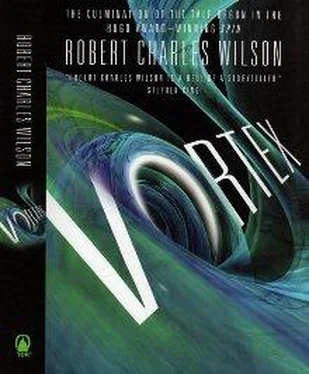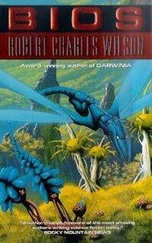Sandra hurried to her office and closed the door. She had two case summaries that needed writing up. She gave the folders a guilty look and pushed them aside. Then she took the envelope Bose had given her from her purse and tugged out the sheaf of closely written pages and began to read.
* * *
She was brimming with fresh questions when she met Bose that evening.
This time he had picked the restaurant, a Northside theme pub, shepherd’s pie and Guinness and green paper napkins embossed with pictures of harps. He was waiting when she arrived. She was surprised to find another woman sitting at the table with him.
The woman wore a blue flower-print dress that was neither fresh nor in good repair. She was skinny to the point of emaciation and she seemed both nervous and angry. When Sandra approached the table the woman looked at her warily.
Bose stood hastily. “Sandra, I’d like you to meet Ariel Mather—Orrin’s sister.”
Chapter Six
Turk Findley’s Story
There had been moments during my captivity when I wasn’t sure whether I wanted to live or die. If there was any sense or meaning in the life I had lived—from the unforgivable act that had caused me to leave Houston many years ago to the moment I woke up in the Equatorian desert—I couldn’t see it. But now the mindless urge to live came roaring back. I watched as swarms of Voxish aircraft began the systematic slaughter of the Farmer rebels, and all I wanted was to get to a safe place.
From the cart on its hillside we were able to see the treeless plain surrounding Vox Core as it became the scene of a rolling apocalypse. The Farmer armies had already begun to retreat as soon as the sirens sounded. At the first sight of the approaching aircraft they dropped their makeshift pikes and broke formation, but the Voxish warplanes came on relentlessly, skimming over the ranks of their enemies like hunting birds. The weapon they used was new to me: the aircraft projected fiery wave fronts that rolled across the landscape and then vanished like summer lightning, leaving cone-shaped swathes of smoldering soil and charred bodies in their wake. The sound they made was a seismic exhalation, powerful enough that I felt it in my rib cage. The war sirens went on wailing like mournful giants.
Briefly, it seemed as if we might be safe up here on the hill. Then one of the warplanes banked nearby, as if considering us, and the wind carried up the stench of smoke and burning flesh. Our guard detail evaporated, running for the woods, with the exception of Digger Choi, who seemed immobilized. I caught his eye. He was clearly terrified. I held out my bound hands to him, hoping he could interpret the gesture: Don’t leave us tied up like hogs at a slaughter. Allison added a few pleading words in Voxish, barely audible under the general roar.
Digger Choi turned his back.
I called out, “ Cut us loose, you cowardly fuck! ” And although he surely didn’t understand English he stopped and turned back, glowering through his fear. He dropped the latch on the cart’s gate and cut us free with the knife he carried, two hasty slashes, first Allison, then me. The blade bit my wrist but I didn’t care. I was cravenly grateful.
Allison muttered a Voxish word that might have meant “Thanks.” I couldn’t translate the Farmer’s response, but the go-to-hell tone of it was unmistakeable.
Down on the plain the carnage continued. The stink of frying human flesh became nauseatingly dense. Digger Choi turned to follow his friends in their dash for the treeline, but stopped in his tracks when a shadow eclipsed the distant lights of Vox Core. It was one of the Voxish aircraft, directly overhead, flying slow and low. Suddenly there was light all around us, so bright the air itself seemed whitewashed. An amplified voice called out incomprehensible orders in Voxish. “Stay still,” Allison said, putting her hand on my arm. “Don’t move.”
* * *
It was our clothing that saved us—our greasy, bloodstained, road-worn yellow tunics.
The Network had been restored, and if Allison’s limbic implant had been intact it would have alerted the Voxish forces to our presence. But the Farmers had destroyed her node, and I had never worn one to begin with, so we should have been indistinguishable from anyone else on this killing ground.
Except for our clothes. Microscopic radio-frequency tags were embedded in the coarse weave, identifying us (or at least what we wore) as survivors of the Equatorian recovery mission. That was enough to buy us a reprieve. The aircraft bellied down to land. A door sprang open and soldiers in military gear vaulted out and formed a cordon around us, weapons aimed.
Digger Choi was caught inside the cordon. He seemed to understand that surrender was his only option. He dropped to his knees and put his hands over his head in a gesture that would have been familiar on any battlefield ten thousand (or twenty thousand) years ago. The Voxish soldiers kept their weapons trained as Allison stammered out an explanation or a demand.
After a quick consultation the soldiers gestured to their aircraft. “They’re taking us to Vox Core,” Allison said, and the relief in her voice was palpable. “They don’t know for sure that I’m telling the truth, but they know we’re not Farmers.”
They knew with equal certainty that Digger Choi was a Farmer, and one of the soldiers aimed a weapon at his head.
I said, “I’m not going anywhere until that man puts his gun down. Tell him so.”
Given the slaughter that was taking place on every side of us, maybe the summary execution of Digger Choi was a small bone to choke on. But he had risked his life to set us free, even if he had been sullen about it. I didn’t feel like watching his execution.
Allison gave me a peculiar look but she gauged my temperament correctly. She barked out a translation.
The soldier hesitated. I stepped forward, grabbed the Farmer’s forearm and pulled him upright. I could feel him trembling under my hand. “Run,” I told him.
Allison translated the single word. Digger Choi didn’t need to be told twice. He darted toward a part of the forest not yet burning. The soldiers shrugged and let him go.
He lived a little longer because of what I had done. But only a little.
* * *
The aircraft carried us over the killing fields and across the city wall to a landing bay on one of the towers of Vox Core. During the brief flight the Voxish soldiers appeared to have received confirmation of our identities: after a quiet mutual consultation they began to treat me with deference and spoke to Allison in what sounded like sympathetic voices. Even before the aircraft docked we were given fresh clothing (crisp new jumpers, this time in a shade of blue). One of the soldiers, evidently a medic, slathered a soothing balm on my wrist where Digger Choi had slashed it in the process of cutting me loose. The same soldier attempted to examine the wound where Allison’s node had been removed, but she pulled away from him and snarled. We were given water to drink: clean, cool, heavenly.
The landing dock was a windy rooftop. We left the aircraft and the soldiers escorted us to an enormous elevator housing, but Allison balked at the entrance and asked the soldier in charge a question. Her eyes widened at his answer. She spoke again, he answered curtly; the discussion began to sound like an argument, until at last the soldier gave her an exasperated nod.
“We’re almost exactly at the midpoint in the passage of the Arch,” she said to me. “The Network estimates twenty minutes or so to the transit, assuming it happens. I’m staying here until it does.”
Читать дальше












